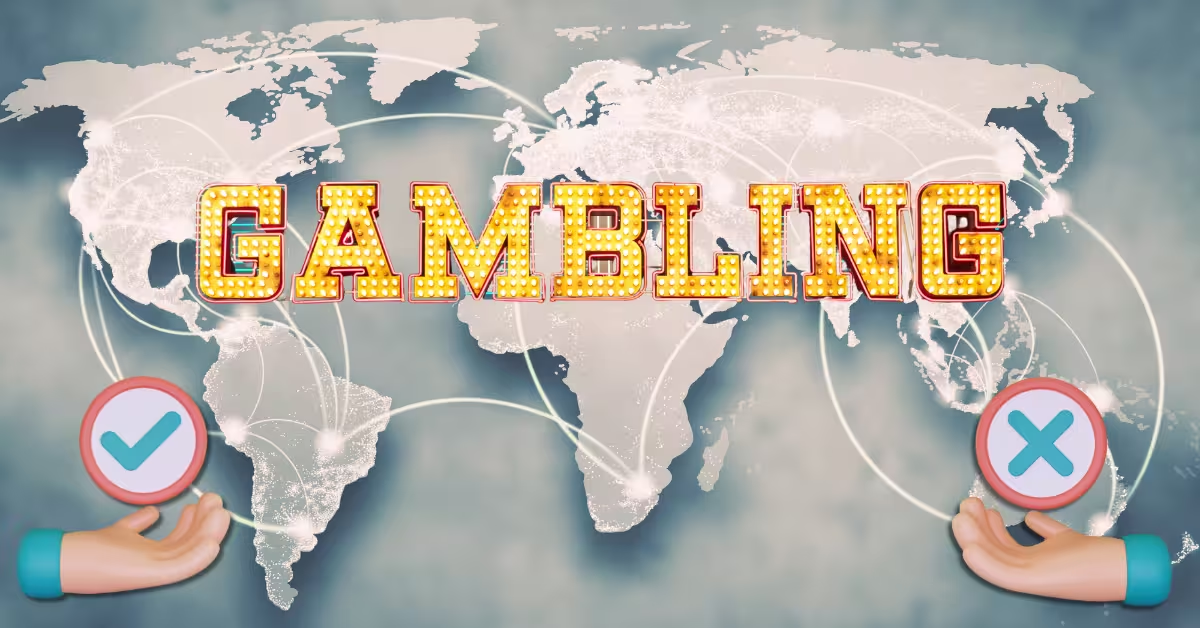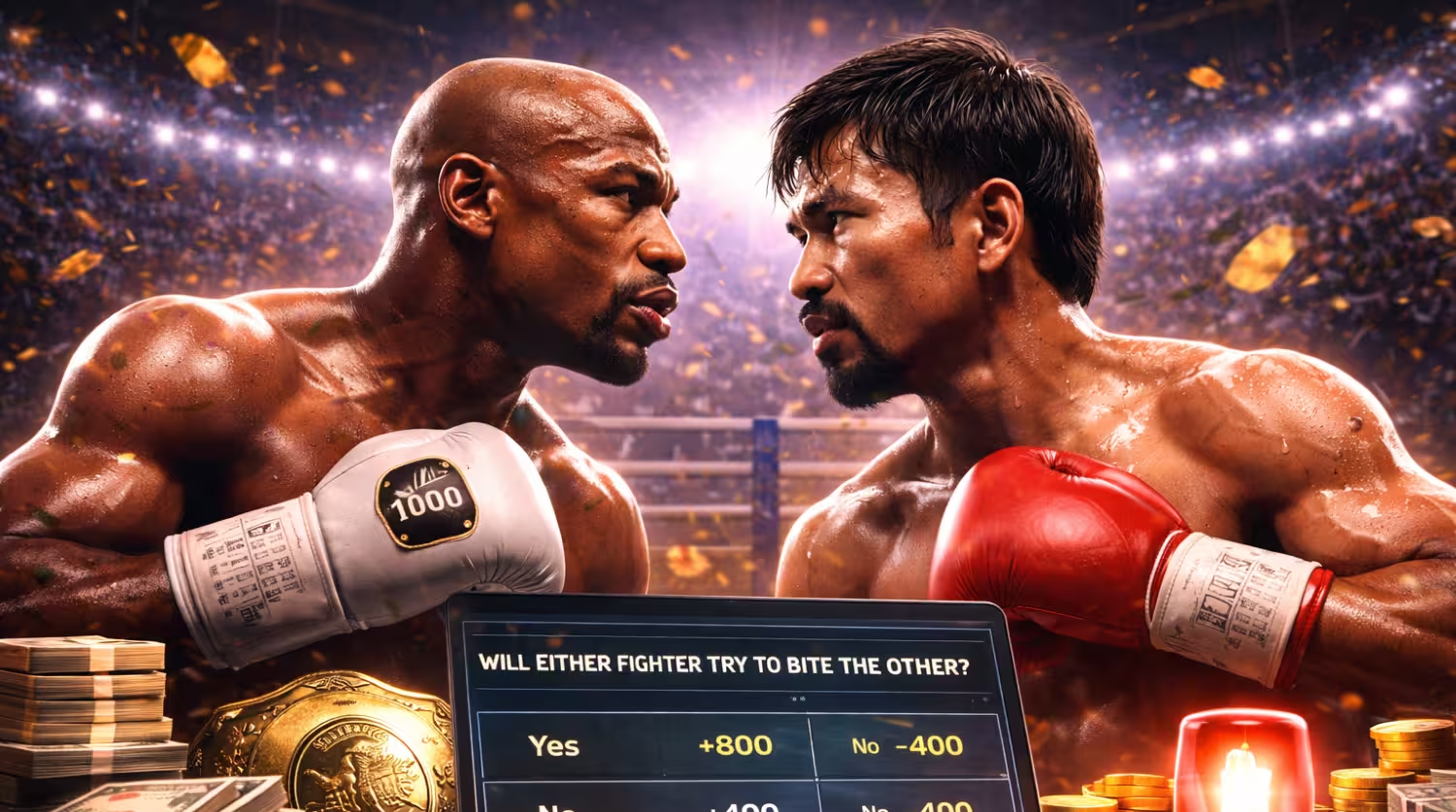Why Some Countries Ban Online Gambling and Others Encourage It

Spin the roulette wheel in London, and you’re playing on a fully licensed site that feeds tax revenue back into the UK economy. Spin that same wheel in Dubai, and you’re breaking the law. Identical game, radically different outcomes.
That contrast raises the real question: why do some governments promote online gambling as a regulated industry while others ban it outright? The answers aren’t random. They come down to a set of levers — cultural values, political models, tax policy, public health priorities, anti-money laundering rules, payment systems, and the strength of regulators themselves.
Take a look at the map and you’ll see it: New Jersey versus China, Sweden versus Saudi Arabia, Ontario versus Qatar. Same global internet but with very different rules.
In this article, we’ll unpack the seven levers that shape national policy on online gambling, highlight case studies on both ends of the spectrum, and show what it all means for players. This is for information only, so you should always check your local laws before you gamble online!
You can check out our comprehensive guide to Online Gambling Laws by State for a full breakdown!
TL;DR Snapshot
The first order of business is to give you a quick explanation of how the levers usually play out in the table below. Then we’ll get into a detailed analysis of all seven!
| Policy Lever | Ban Stance | Encourage Stance | Player impact |
|---|---|---|---|
Culture / Religion | Moral or religious prohibition (Sharia, etc.) | Secular tolerance; viewed as entertainment | No access; gambling is stigmatized vs. normalized |
Politics / Governance | Paternalistic, risk-averse framing (harm prevention) | Liberalization with guardrails; mixed motives | Few choices vs. regulated options |
Economics / Tax | No tax focus (state lottery only) | GGR-based taxes, license fees | Offshore leakage vs. onshore promotions and recourse |
AML / KYC | Restrict to reduce money laundering | Strong KYC, source-of-funds checks | Access blocked vs. checks before cash-out |
Public Health (RG) | Ban to prevent harm | Regulate to manage harm | All-or-nothing vs. limits, self-exclusion, ADR |
Payments & Tech | ISP/payment blocks, ad bans | Monitored ads; payment rails (cards, e-wallets) | Workarounds & failures vs. smooth deposits |
Regulator Capacity | Limited enforcement tools | Data-driven audits, clear rules | Uncertainty vs. predictable play |
Main Takeaways
- Countries that regulate and encourage online gambling usually do it for one or two reasons, and that’s to get tax revenue and protect players with guardrails.
- Countries that ban online gambling will cite cultural, religious, or harm-prevention rationales, but those bans usually push players to offshore sites with weak or no protections whatsoever.
- The tax model really matters: gross gaming revenue (GGR) taxes support all sorts of sustainable markets; turnover-based taxes usually push both operators and players offshore.
- Payments and KYC enforcement shape what players actually experience. You can write all of the laws you want, but if payment rails are blocked or if ID checks are strict? That’s what ultimately decides user behavior.
- Trendline 2025–2030: More governments are moving toward regulated frameworks, but you can expect to see stricter anti-money laundering checks, tighter affordability rules, and more limits on advertising.
Always check your local laws before you bet!
The 7 Policy Levers That Decide ‘Ban or Encourage’
Governments evaluate gambling through a lot of very different lenses. But what are the seven main policy levers? They are as follows:
1) Culture & Religion
Religious and cultural norms are the heaviest influencers in gambling policy. In most Muslim-majority countries, Sharia law prohibits gambling outright. Qatar’s penal code outlaws “gambling” with up to 3 months in jail and fines. Saudi Arabia likewise bans gambling; offenders can be fined or imprisoned.
In secular nations, gambling is treated as entertainment. Historically, countries with strong religious opposition (Islamic countries and some conservative societies) have banned gambling entirely. But countries without such prohibitions tolerate licensed gambling and integrate it into popular culture.
A ban usually hinges on a moral policy rather than technical feasibility. Even where it’s forbidden, internet-based gambling has users. Saudi tech firms deploy advanced blocking, but citizens can still access offshore sites via VPNs. Religious taboos and moral concerns can trigger a ban, whereas secular cultures lean more toward regulation.
2) Politics & Governance Model
A government’s ideology and approach matter as well! Paternalistic or authoritarian regimes will invoke public health or moral reasons to ban gambling, citing addiction or corruption. In single-party states or socially conservative governments, gambling is seen as a social ill to be prohibited. Liberal democracies usually favor regulated markets with oversight, as they frame gambling as a personal choice, albeit one that requires consumer protection.
Lobbying also plays its part. In freer markets, gambling and tourism interests push for legalization (e.g., casinos and online platforms in Nevada or New Jersey). But countries with state-run lotteries or gambling monopolies may limit competition to protect revenue. Some states (like Nordic ones) adopt a middle approach: allowing only a state monopoly (e.g., Finland, Norway) or limited licensing. In some corrupt or unstable systems, a ban could be cynically used to limit off-book money flows.

Permissive politics = regulated gambling (with safeguards); precautionary or ideologically conservative politics = bans.
3) Economics: Tax, Jobs, and Tourism
Taxes on gambling revenue are a huge driver. Countries legalize online gambling to tap into a super lucrative market. Gibraltar’s government reports that the online gambling industry “makes up about 25% of its economy and gives work to 3,500 people.” Isle of Man’s online gaming is similarly critical (~16% of GDP). Malta has become a hub for online casinos; it bolsters tourism and financial services. The regions export their licensing regimes worldwide, bringing in operators who want access to regulated players.
Tax structure is the main thing: a Gross Gaming Revenue (GGR) tax (levied on operator profit) of ~15–20% is found to maximize onshore market share. Higher GGR rates beyond that tend to diminish both revenue and player retention. By contrast, heavy taxes on turnover or on bets (rather than winnings) usually prompt players to move offshore. Such taxes either force operators out or lead to worse odds for players. (One report calculated the ideal channelling tax at ~15–20% GGR; above ~20% channelization drops, and so do revenues).
If taxation is too low (or zero), governments are afraid of uncontrolled gambling and forgo consumer protections. If it’s too high, legit operators bleed money, and grey/black markets swell.
Well-regulated markets try to “channel” the majority (usually 80–90%+) of player spending onshore, where it generates tax and is under oversight. Licensing fees and oversight costs also factor in: regions like New Jersey and Ontario have relatively low taxes and per-bet taxes, and that encourages big operators to play legally.
4) Public Health & Harm Minimization
Concern for gambling addiction also drives policy in a lot of places. Areas with high problem gambling prevalence usually debate heavy regulation or bans. Globally, ~1.2% of adults have a gambling disorder. An Australian survey found that about 0.5–1% of adults are problem gamblers, and there are many more at risk; regulators cite this data to justify strict rules.
Where gambling is legal, regulators impose harm-minimization tools. These include mandatory deposit limits, wagering or loss caps, cooling-off periods, and self-exclusion programs. In practice, every regulated market offers some RG (responsible gambling) features: the UK’s Gambling Commission mandates a national self-exclusion register (GAMSTOP), deposit limits, and affordability checks. A lot of countries now require operators to identify at-risk behavior and intervene (with warnings, limit suggestions, or temporary suspension).
Evidence-based guidelines recommend capabilities at scale. The WHO urges “centralized account registration to require those who gamble to set binding loss limits” and tight advertising restrictions. Sweden’s 2019 law forces players to verify identity (via BankID) and allows session timers and break limits. In consumer-protection models like Estonia, operators have to block self-excluded players using a national RG database.
The ban stance is “all or nothing” (trying to prevent any harm by forbidding gambling), while the encouraged stance is to “manage harm” (provide tools like self-exclusion, counseling referral, and dispute resolution). And excessive taxes or restrictions can backfire by pushing gamblers offshore, which exposes them to further harm; there are no safety checks at black-market sites.
5) AML/KYC & International Pressure
Anti-money laundering (AML) concerns significantly influence many decisions. Unregulated gambling can be a conduit for laundering illicit funds. International bodies like the Financial Action Task Force urge countries to regulate casinos and online gambling under AML laws. Some jurisdictions, especially those under heavy external pressure (FATF grey list, sanctions, etc.), err on the side of closure to avoid misuse.
In practice, countries might restrict or ban online gambling to simplify AML compliance. Where it’s legalized, operators have to enforce strict KYC (know-your-customer) and “source of funds” checks. All US regulators now require players to upload ID and income proofs before making any large withdrawals, and the UK has introduced mandatory financial risk checks for high-deposit players. Without strong enforcement (and international cooperation), poorly regulated sites can turn into money-laundering meccas.

6) Payments & Tech Enforcement
The ease of online payments is a really practical lever. When a country bans gambling, banks and payment processors are instructed to cut off transactions to gambling sites, and governments order telecom providers to block gambling websites (DNS or IP blocks). This is very common in the Gulf and parts of Asia. But tech-savvy users circumvent the bans via VPNs, alternative payment methods (crypto or gift cards), and mirror sites.
Regulated markets implement secure payment rails, where only licensed payment gateways (such as cards and e-wallets) are allowed, and every deposit is flagged. In Australia and parts of Europe, gambling sites will only accept regulated payment services that can be audited. This makes onshore play frictionless and traceable. But it also means that any problems (like needing ID for a credit card) can push customers to foreign sites. Paywall friction is a main outcome: bans create workarounds (VPNs, offshore bank accounts), whereas licensing regimes create smooth transactions with safeguards (credit bans, mandatory source-of-funds questions).
7) Regulatory Capacity & Data
Finally, the sophistication of a country’s regulator matters. Regulating online gambling well takes data feeds, experienced auditors, and investigative tools. Some smaller or poorer countries simply don’t have the budget or expertise to monitor online gaming.
They may opt for a ban because they cannot enforce a license even if they wanted to. But in wealthy jurisdictions like the UK, Malta, New Jersey, and Ontario, they invest in analytics to track player flow, suspicious betting patterns, and on-platform compliance.
A related point is affordability and harm monitoring. The UK White Paper (2023) calls for “financial risk checks” behind the scenes. Since August 2024, a customer depositing over £500 in a month triggers credit-check screening, which will soon fall to £150. These advanced measures require skilled regulators and banks. Less-developed regulators lack such tools, so they will either ban gambling or delegate it (e.g., to lotteries) to avoid the risks.
Countries that encourage gambling tax and regulation do so to protect players; those banning all rely on moral/harm arguments but will see offshore leakage. Tax policy and on-the-ground enforcement (payments, tech) usually dictate the real player experience.
Case Studies: Countries That Encourage (Regulate & Tax)
Next up are examples of regulated markets, how they approach online gambling, and what players get!
The UK legalised remote gambling under the 2005 Gambling Act. All operators must hold a UK licence from the Gambling Commission and adhere to strict codes (the “LCCP”). This includes strong KYC, protections against underage play, affordability checks, and a national self-exclusion system like GAMSTOP. Advertising is allowed, but it’s heavily regulated by the ASA and has to be “moderate.” The UK also has the Independent Betting Arbitration Service (IBAS) for any and all player complaints. What does this mean for players? You have clear legal recourse, mandatory fairness standards (including RTP disclosure and audited games), and strong social responsibility checks. On the flip side, operators may enforce stringent ID/affordability checks and limits that some players find inconvenient.
Small jurisdictions with open licensing regimes became major online gambling hubs. For decades, they’ve attracted online casinos and sportsbook operators through favorable tax rates and legal certainty. Their regulators (Malta Gaming Authority, Gibraltar Gambling Commission, Isle of Man Gambling Supervision) have raised industry standards globally. The economic cluster creates many jobs and specialized services. These jurisdictions emphasize compliance: getting a licence is rigorous, and licensed firms must continuously audit AML, produce financial reports, and abide by RG rules. What it means for players: Sites licensed here tend to be well-capitalized and audited; there is typically good consumer protection. Recent EU moves have pressured some hubs, like reforms of Malta’s licensing under the EU’s AML directives, but they are still leaders in compliance.
Both New Jersey (since 2013) and the province of Ontario (since 2022) launched competitive regulated online gambling markets, and each used a consumer-focused model. They grant lots of operator licenses, ban offshore sites via payment blocks, and set moderate tax rates to keep players onshore.
This strategy worked: Ontario’s first-year stats showed $35.5 billion in wagers generating $1.26 billion in gaming revenue. New Jersey saw $6.30 billion total gaming revenue in 2024, with iGaming alone at $2.39B (a 24% jump). Promotion is carefully limited (no general TV ads during kids’ programming, etc.), and problem-gambling helplines are funded by the industry. What it means for players: Licensed American/Canadian sites offer large bonuses and loyalty programs, but also verify identity rigorously (e.g., to enforce self-exclusion) and must play by North American rules (e.g, no NHL betting in NJ, etc.). Government oversight brings dispute avenues but also financial checks.
Sweden’s 2019 licensing reform and Estonia’s regulated market both emphasize digital ID and data. In Sweden, players log in with BankID, ensuring full KYC; operators report play data to the regulator. Sweden enforces strict marketing standards (some planned tightening around “moderation” of ads) and has really strong loss-limit tools. Sweden also requires all winnings and losses to be tracked nationally. Estonia similarly uses national digital IDs and a central RG registry. Both require operators to prominently warn players about risks and to implement mandatory deposit/session limits if requested. These markets prioritize player safety via tech (digital ID systems) and strict oversight. They rely heavily on protection, and some view their marketing rules as a little too strict when it comes to ad content bans.
Case Studies: Countries That Ban (or Heavily Restrict)
And now for the examples that show how the prohibitions play out:
Gulf states enforce gambling bans largely on religious grounds. Saudi law “completely criminalises gambling.” Qatar’s criminal code explicitly outlaws betting (up to 3 months jail or small fines for gamblers ). The UAE is interesting: historically, gambling was banned, but in 2024, it began issuing licenses for commercial casinos (e.g., Wynn Resorts in Ras Al Khaimah). However, the UAE’s old laws still remain on the books; offshore gambling websites are blocked, banks and telcos enforce bans, and violating the code can mean hefty fines (up to ~$13,600) and jail. In practice, Emiratis and residents mostly avoid gambling, but enforcement focuses on tech blocks. Outcome: In these countries, people who want to gamble often use offshore sites via VPNs despite the risks. Governments claim success in moral terms, but regulators admit enforcement is mostly by blocking and fines rather than mass arrests.
Mainland China has a near-total ban: no private casinos or betting of any kind are allowed by law. The only exceptions are the two state-run lotteries (Welfare and Sports Lottery). Police crack down on anyone caught hosting or participating in unauthorized gambling.
Macau and Hong Kong are separate entities: Macau operates as a massive regulated casino hub (extremely reliant on tourism), and Hong Kong has licensed lotteries and jockey club betting. On the mainland, the demand didn’t disappear. A huge underground market exists, both private, online, and offshore, which causes continuous enforcement (raids, telecom crackdowns on illegal sites). Despite the harsh penalties, studies show that mainland players are still willing to risk it by gambling illegally.
India’s constitution delegates gambling to states. The 1867 Public Gambling Act still stands in many places, banning casinos and betting “in gaming houses,” but predating the internet.
Some states allow certain activities: Goa and Sikkim license casinos (especially on riverboats and in casinos in Goa). Crucially, courts have carved out exemptions for games of skill. So fantasy sports, rummy, and poker are offered legally. But the picture is highly fragmented: states like Sikkim and Nagaland have modern laws with online licensing; others like Telangana, Andhra Pradesh, and Tamil Nadu ban virtually all real-money gaming (skill or chance). Players face confusion in these areas. In states with bans, they go to offshore sites or illegal local operators. Nationwide, policy is evolving quickly (e.g, India introduced new online gaming rules in 2023). Right now, one could legally play fantasy cricket in Maharashtra but not in Tamil Nadu.
Cambodia was once known for online gambling (particularly hosting Chinese-run offshore platforms). In 2019, the government enforced a total ban on online gambling, citing lawlessness and pressure from China; most Chinese workers left Sihanoukville as a result.
Thailand historically criminalized gambling, too, but recently launched initiatives to legalize land-based casinos and tighten online laws. In late 2024, Thailand formed a national committee to update anti-gambling laws and combat illegal gaming syndicates. Illegal Chinese-operated betting hubs (like in Myanmar/Cambodia) spill into Thailand, prompting raids and even extradition treaties with China. Outcome: Both countries vacillate between wanting new gaming revenue (from tourists or locals) and trying to suppress unlicensed markets. The policy “pendulum” means rules change often. For players: the grey market remains active, and travel or tech-based gambling is common until clear new regulations take hold.
The above information is current as of 2025.
Economics: How Tax Models Shape Behavior
The way governments tax gambling has a huge impact on market health; in this aspect, there are two broad models employed:
Gross Gaming Revenue (GGR) Tax
Operators pay a percentage of their gross winnings. This aligns cost with operator revenue. It tends to shrink in bad times and grow with market size. Economists find that a moderate GGR rate encourages participation. A classic report noted that optimal channeling occurs with a GGR tax of around 15–20%; above that, the onshore share and total tax revenue drop. Many regulated markets (NJ, UK, Ontario, Spain, etc.) use GGR taxes in this range.
Turnover (Handle) Tax
A flat fee on bets or a percentage of stakes. This tends to punish both winning and losing bets equally. Operators often hate high turnover taxes because they must bet big volume to stay profitable, which can make regulated markets uncompetitive. Several studies found that countries with turnover taxes (e.g., France historically at 8–12% of stakes, Greece up to 35%) suffer high black-market leakage.
| Tax Model | How It Works | Example (Player bets $100, wins back $90) | Operator Taxable Base | Market Impact |
|---|---|---|---|---|
GGR Tax | Applied to the operator’s net revenue (stakes – payouts). | $100 staked – $90 returned = $10 revenue. | $10 | Supports healthy competition; keeps most play onshore. |
Turnover Tax | Applied to every bet placed, regardless of payouts. | $100 wagered, even if $90 paid back. | $100 | Shrinks operator margins; pushes players offshore. |
Economists point out that heavy turnover taxes distort odds and fun (some bets become mathematically worse), and effectively push players offshore. Conversely, reasonable GGR taxes let operators compete by offering better odds or promotions, keeping gamblers onshore where they pay tax and have legal recourse.
Another factor? Licensing fees. A high one-time license cost can deter small operators and concentrate market share; a low fee with clear renewal conditions, on the other hand, fosters competition. Most consumer-friendly regimes favor the latter.
Consumer Protection: What ‘Good’ Looks Like
A well-regulated online gambling market implements strong consumer safeguards. The main elements include the following:
- KYC/Identity checks: Verify age (18+), identity, and sometimes source of funds. Digital ID systems (bank-issued IDs, eGov IDs) can streamline this.
- Reality checks: Operators must encourage breaks (e.g, pop-up reminders after certain play time).
- Deposit/Session/Loss limits: Players can voluntarily set them; many places also allow authorities to impose limits on at-risk players.
- Self-exclusion registers: Nation-wide lists (like GAMSTOP in the UK) prevent compulsive gamblers from logging into any licensed site.
- Responsible Gambling (RG) advertising rules: No targeting minors, no promises of risk-free play, etc. Many countries ban advertisements featuring celebrities or influencers.
- Game fairness: Licenses require certified Random Number Generators, independent audits, and transparency (e.g., publishing overall RTP rates).
- Problem gambling support: Funded helplines, on-site links to support groups, and mandatory operator contributions to prevention programs.
- Importantly, dispute resolution: Licensed markets provide channels. For example, Britain has IBAS (Independent Betting Adjudication Service), and Ontario has iGaming Ontario’s consumer team. Funds also must be segregated (players’ deposits held in trust).
Red flags of unlicensed sites: By contrast, illegal operators often lack license info, use sketchy software (not RNG-certified), have no HTTPS security, and offer outrageously high bonuses to hook players. They usually have poor customer service and no clear complaint mechanism.
Enforcement & the Black Market
Strict bans often increase underground gambling rather than eliminate it. Users simply migrate to offshore sites, mobile apps, and unregulated networks. A recent industry report summarizes: “black markets exist because consumers are unable to find the products they want at the right price or value or with sufficient choice in domestically regulated markets.” In other words, unmet demand fuels illegal play.
Authorities have countered this with technology: IP/DNS blocks, compulsory shutdown of local payment routes (including banks, e-wallets, and credit cards), and online ad bans. But these efforts resemble a “whack-a-mole.” Dedicated gamblers use VPNs or cryptocurrencies to slip past blocks. Even comprehensive ISP blocks rarely stop high-rollers.
Smarter regulation (adequate choice + moderate taxes + solid RG tools) raises the onshore channelization rate, reducing the black market share. By contrast, prohibition amplifies player harm: offshore sites have no mandatory deposit limits, no self-exclusion, and often lax AML.
Advertising, Sponsorship & Social Norms
How a country treats gambling ads reflects its stance. In liberal markets, ads are allowed but controlled (age gating, no misleading claims). For example, the UK requires ads to be “legal, decent, honest and truthful.” In mature EU markets like Italy, blanket TV/radio bans were imposed in 2018 (later softened with a pre-9pm watershed) due to youth concerns. France and Spain have similar restrictions on when and how betting ads can appear. The Netherlands prohibits gambling sponsorship on sports jerseys. Asian markets tend to ban gambling sponsorship outright.
- Social norms matter: Western countries often tolerate gambling ties with sports (football jerseys, event sponsorship), albeit with oversight. In contrast, in places like China or the Gulf, any public association is taboo. Many regulators worry about children: e.g., influencer marketing rules are tightening to prevent celeb gamblers on TikTok/YouTube. The global trend is towards more caution in gaming marketing, with higher age limits, more prominent warnings, and way less bonus promotions.
- Current examples include the following: England is considering a ban on gambling logos in football, Australia is restricting online betting ads to late-night hours, and Thailand is vetting casino advertising as part of its casino legalization. Advertising policies mirror if a country wants to normalize gambling (like with UK sports sponsorship) or stigmatize it (no ads, no sponsorship).
The VPN Question (Know the Risks)
A lot of players in restricted markets wonder if a VPN can help. Using a VPN to access offshore sites is often a legal grey area. In some places, it’s clearly illegal (e.g, the UAE’s laws technically forbid accessing unlicensed gambling ). Even if not explicitly illegal, violating a site’s terms by faking location risks account closure and confiscation of funds.
From a practical standpoint, VPNs can introduce lag or connectivity issues (wagering servers may still detect and block VPN traffic). And payment can still be problematic: many offshore sites will ask for ID or shut you down if KYC fails. Remember, using offshore operators means no consumer protection – your losses are without recourse.
Disclaimer: This info is provided for educational purposes only. Always check your jurisdiction’s stance before trying to play online with or without a VPN. Using illegal channels can lead to fines or worse.
What This Means for Bettors
If you’re in a regulated market: Check for a valid license logo (UKGC, MGA, NJDGE, etc.) on the site/footer. Verify the site’s license number on the regulator’s website. Use RG tools offered: deposit limits, self-exclusion, reality checks. Make sure the site uses secure payments (SSL, known processors). If you run into a problem (non-payment, unfair play), you have legal options like complaining to the regulator or an independent arbiter.
If you’re in a restricted market: First, look for legal alternatives: many countries still offer state lotteries, licensed horse-race betting, or skill gaming (fantasy sports, chess, trivia apps). Travel to a nearby country with legal casinos is another route (with known tax/reporting obligations). Be aware: even if you gamble abroad or online secretly, some governments tax gambling income or require reporting of foreign accounts. For instance, US citizens must report all gambling winnings on federal returns, even if won abroad.
Always prioritize reputable, licensed operators if you gamble. Unregulated sites may seem tempting (big bonuses, no checks), but they carry huge risks of non-payment, fraud, and no support.
Future Outlook: 2025–2030 Trends to Watch
Looking ahead, several trends are emerging:
- Shift from bans to regulation: Even many traditionally strict countries are considering legal frameworks. For example, parts of Asia (Myanmar, Cambodia) have flipped policies under pressure. We expect more jurisdictions to realize that controlled regulation can beat clandestine markets.
- Stricter AML and affordability checks: Regulators worldwide (from the UK to Australia) are expanding financial vulnerability checks on players. Data analytics and open banking will likely be used to flag risky behavior.
- Tighter advertising/bonus rules: The athletic shoe sponsorship model is being questioned. We will see continued tightening of when and how gambling can be promoted, especially to protect youth.
Crypto and payments: Regulators are increasingly treating cryptocurrencies and stablecoins like other gambling payments. FATF standards (Recommendation 15) already mandate AML controls on virtual-asset gambling. We expect more jurisdictions to ban or heavily regulate crypto bets unless fully KYC’d. - Responsible gambling tech: AI tools may be mandated to detect problem gambling behavior in real time. Biometric age checks (face recognition) could become common.
- Tax reform: Some countries might shift tax burdens from operators to players (or vice versa) to better meet public health goals. Watch for new models, like lump-sum wealth taxes on big winners or government-run betting exchange revenues.
These are not any sort of sensational predictions, but logical extensions of current movements. The overall direction is clear: even conservative governments will wrestle with the big tax/tech incentives and likely lean towards carefully regulated markets by 2030.
Before You Bet: What Your Country’s Policy Really Means
Every country juggles the same goals: revenue, public safety, and cultural norms, but the levers they pull differ.
Here’s a recap of what we went over!
- One spin, two worlds: Your ability to gamble online depends on religion/culture, politics, and economics in your country.
- The seven levers: Culture and religion determine if gambling is taboo vs. entertainment. Political ideology decides liberal license vs. paternalist ban. Tax choices (GGR vs. turnover tax) can either lock players offshore or keep them safe onshore. Public health strategies (self-exclusion, limits) and AML/KYC regimes decide if gamblers are supported or simply blocked. Tech enforcement (blocks, payment cuts) often matters more in practice than the law’s wording.
- Day-to-day experience: In regulated markets, you get a variety of legal sites with consumer protections (but also ID checks and gambling warnings). In banned markets, you either gamble illegally (riskily) or turn to legal alternatives (lotteries, sports pools, etc.).
- Next steps: If you choose to play, always pick licensed operators and use RG tools. Check local regulations (see the [Legality Map] and “Is Online Gambling Legal?” guide). Stay within legal channels for your own safety; offshore or VPN play might seem fine until you land on the radar of law enforcement or never get your payout.
Bet smart, stay informed, and when in doubt, always err on the side of caution. If you want to learn more, you can check out our guides on legal casinos, safe sports betting, and responsible gambling tools!
FAQs
Got questions? We’ve got answers to some of the most frequently asked ones we’ve gotten from our readers!
Why Is Online Gambling Illegal in Some Countries?
It’s usually because of cultural/religious norms or public health concerns. Many Muslim-majority countries ban it under Sharia. Others may lack the resources to regulate and ban it to avoid problems. In short, they see gambling as morally unacceptable or too risky to allow.
Is It Safe to Use Offshore Sites if My Country Bans Online Gambling?
No! We cannot give you any guarantees. Your country’s authorities don’t regulate offshore sites, so there’s no legal recourse if they refuse to pay. They may also lack important safety measures. Many banned jurisdictions block payments to such sites anyway. It’s generally riskier both financially and legally than playing on a licensed site.
Can I Use a VPN to Gamble Online?
VPNs can mask your location, and they are used by some players (e.g., in Saudi Arabia) to circumvent bans. However, doing so often violates local laws or the site’s terms of service. You risk account closure, fund seizure, and legal penalties. We do not advise breaking local laws; always check regulations before using a VPN.
How Do Taxes Work on Online Gambling Winnings?
This varies. In places like the UK or Canada, casual gambling winnings are generally not taxed. In the US, however, all gambling income is taxable, and big wins are all reported to the IRS. Some countries tax a portion of large winnings. Always consult a tax professional: declare as required by your local law.
What Are the Signs That a Gambling Site Is Licensed and Safe?
All licensed sites clearly display their regulatory badge (e.g., UKGC, MGA, NJDGE) and license number. They use secure connections (HTTPS) and reputable payment methods. Look for proof of independent auditing of games. You can often verify the licence number on the regulator’s website. If a site is vague about its license or refuses verification, treat it as a red flag.
Why Do Some Countries Advertise Betting While Others Restrict It?
Because the attitudes all differ! Countries that legalized gambling see it as a taxable entertainment industry and allow advertising under rules, as long as the ads are targeting adults. And those who ban gambling forbid all forms of promotions, as they view them as societal harm. It all comes down to if the state’s goal is to control/nationalize gambling or to completely suppress it.

Alyssa contributes sportsbook/online casino reviews, but she also stays on top of any industry news, precisely that of the sports betting market. She’s been an avid sports bettor for many years and has experienced success in growing her bankroll by striking when the iron was hot. In particular, she loves betting on football and basketball at the professional and college levels.








